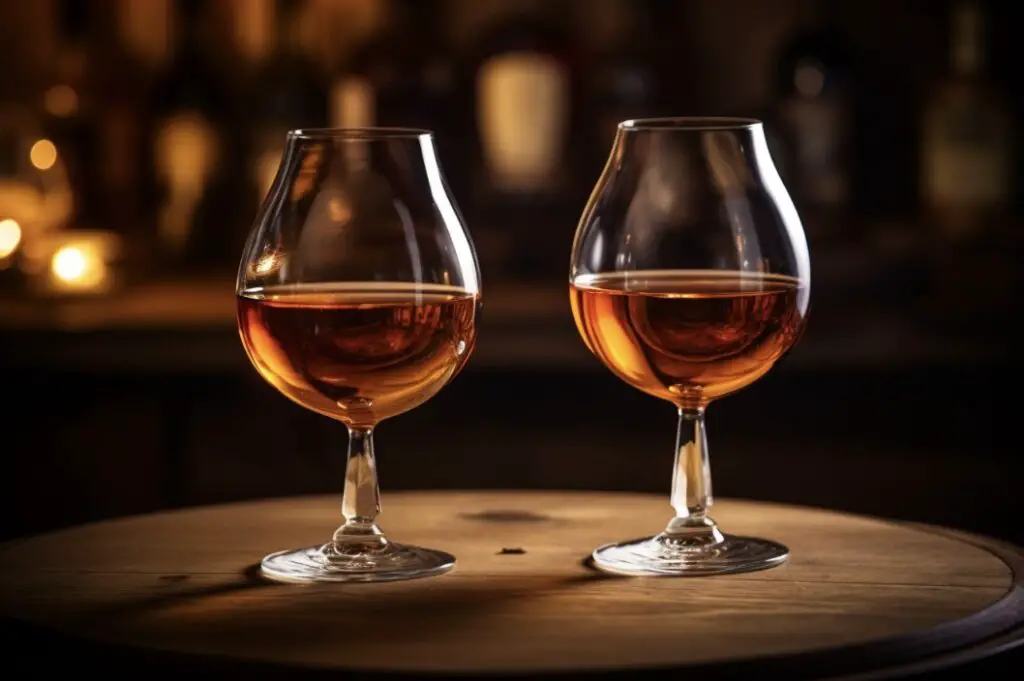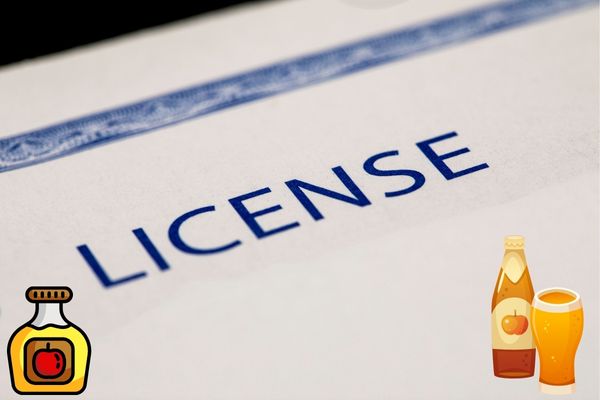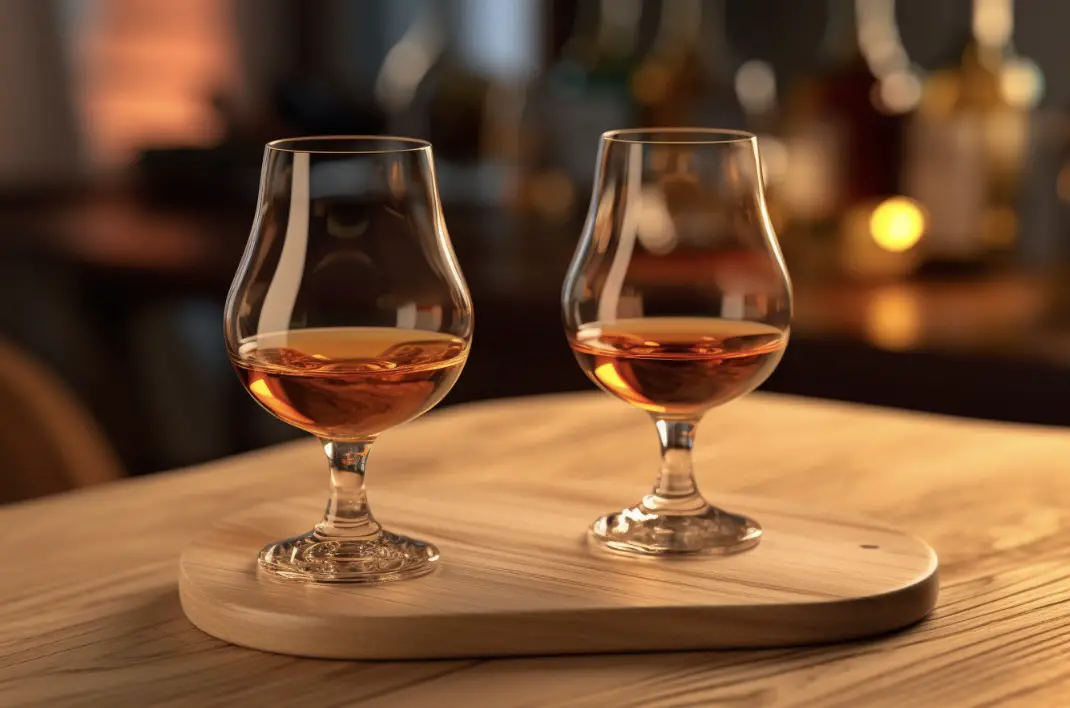Applejack, a popular American apple brandy, has a long and storied history dating back to colonial times. Its creation is often attributed to the early settlers, who sought to make a potent, yet tasty alcoholic beverage from the fruits of their labor.
The process of making applejack is a fascinating one, involving the fermentation and distillation of apples and their juice. However, some people might wonder: is making applejack illegal?
In short, making applejack at home is illegal in the United States without a proper license. The process of distilling alcohol without a license is against federal law, and the penalties can be severe.
As an experienced brewer, I have dabbled in many different brewing processes and have taken the time to research the legalities surrounding them. In this blog post, we will explore the history of applejack, the process of making it, the reasons for its illegality, potential risks, and some alternative options for those who still wish to enjoy this delicious beverage.
A Brief History of Applejack
Applejack has been a staple in American history since the early colonial days. In fact, applejack was so popular that even George Washington himself was known to have enjoyed it. Many colonial-era taverns and inns would serve applejack as a staple alcoholic beverage.

During the Prohibition Era, applejack production, like all other alcoholic beverages, was heavily restricted. However, after Prohibition was repealed in 1933, applejack regained popularity and continues to be a favorite among many Americans today.
The Process of Making Applejack
The process of making applejack begins with fermenting apples or apple cider. The apples are crushed to extract their juice, and then yeast is added to initiate the fermentation process. The yeast converts the sugars in the apples into alcohol, resulting in a hard cider with an alcohol content of around 6-8%.
After fermentation, the hard cider is distilled to increase its alcohol content. This is typically done through a process called freeze distillation or “jacking.” By freezing the cider, the water content in the mixture is separated from the alcohol, creating a concentrated alcoholic beverage with a higher alcohol content than the original hard cider.
Why Is Making Applejack Illegal?
The illegality of making applejack stems from the distillation process. In the United States, it is illegal to produce distilled spirits at home without a license from the Alcohol and Tobacco Tax and Trade Bureau (TTB). This includes the production of applejack, as it involves the distillation of hard cider.

The reasoning behind this law is mainly due to safety concerns, tax revenue, and the potential for alcohol abuse. Distilling alcohol can be dangerous if not done properly, leading to explosions or the production of toxic substances. Additionally, the government collects a significant amount of tax revenue from the sale of alcoholic beverages, which could be lost if individuals were producing their own spirits.
Potential Risks of Making Applejack
There are several risks associated with making applejack that should be considered before attempting to do so illegally.
1.Legal ramifications: As mentioned earlier, producing distilled spirits without a license is illegal and can result in severe penalties, including fines and imprisonment.
2.Safety hazards: Distilling alcohol can be dangerous, particularly if done incorrectly. The process involves heating flammable substances and can lead to fires or explosions if not handled properly.
3.Toxic substances: If the distillation process is not done correctly, it can result in the production of toxic substances, such as methanol. Consuming methanol can lead to serious health problems, including blindness and even death.
4.Quality control: When making applejack at home, it can be difficult to control the quality of the final product. This could result in a beverage with an unpleasant taste or an inconsistent alcohol content.
Alternative Options for Enjoying Applejack
If making applejack at home isn’t a legal or safe option, there are still plenty of ways to enjoy this delicious beverage.
1.Purchase applejack: Many liquor stores carry commercially-produced applejack, which can be enjoyed legally and safely.
2.Visit a distillery: If you’re interested in learning more about the process of making applejack, consider visiting a licensed distillery that produces the beverage. Many distilleries offer tours and tastings, providing an opportunity to learn more about the process and sample their products.
3.Make hard cider: While distilling alcohol is illegal, fermenting apples or apple cider to create hard cider is not. Hard cider can be made at home legally and can be a delicious alternative to applejack.
4.Experiment with applejack cocktails: If you’re able to purchase applejack, try experimenting with different cocktails that incorporate the beverage. Popular applejack cocktails include the Jack Rose, the Applejack Old Fashioned, and the Applejack Sour.
In Conclusion: Is Making Applejack Illegal?
Yes, making applejack at home is illegal in the United States without a proper license. The process of distilling alcohol without a license is against federal law, and the penalties can be severe.

However, there are still many ways to enjoy this delicious beverage without breaking the law or putting yourself at risk.
To wrap up, here are 10 facts about applejack:
1. Applejack is an American apple brandy with a long history dating back to colonial times.
2. The process of making applejack involves fermenting apples or apple cider and then distilling the hard cider to increase its alcohol content.
3. Distilling alcohol without a license is illegal in the United States.
4. The illegality of making applejack is due to safety concerns, tax revenue, and the potential for alcohol abuse.
5. Producing distilled spirits without a license can result in severe penalties, including fines and imprisonment.
6. Distilling alcohol can be dangerous and can result in fires, explosions, or the production of toxic substances.
7. Many liquor stores carry commercially-produced applejack, which can be enjoyed legally and safely.
8. Fermenting apples or apple cider to create hard cider is a legal alternative to making applejack.
9. Visiting a licensed distillery that produces applejack can provide an opportunity to learn more about the process and sample the beverage legally.
10. Experimenting with applejack cocktails is another way to enjoy this delicious beverage without breaking the law.
FAQs
What proof is homemade applejack?
Homemade applejack is typically made by freeze distillation of hard apple cider, which involves freezing the liquid and then removing the ice to concentrate the alcohol content. The resulting product is a higher proof version of the original cider.
Do they still make applejack?
Yes, applejack is still being made today by a few distilleries in the United States.
Can you make applejack from hard cider?
Yes, applejack can be made from hard cider by freezing the cider and removing the ice to increase the alcohol content.
What can you substitute for applejack liquor?
You can substitute apple brandy or calvados for applejack liquor.
What is the difference between hard cider and applejack?
Hard cider is a fermented alcoholic beverage made from apples, while applejack is a distilled spirit made from hard cider.




